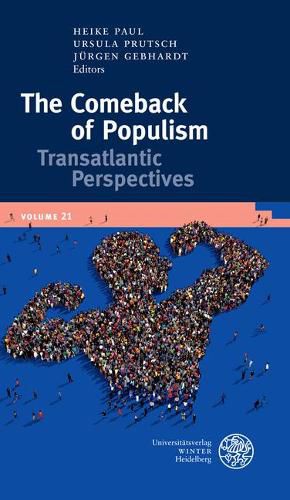Readings Newsletter
Become a Readings Member to make your shopping experience even easier.
Sign in or sign up for free!
You’re not far away from qualifying for FREE standard shipping within Australia
You’ve qualified for FREE standard shipping within Australia
The cart is loading…






Populism is a fuzzy term. It neither identifies a specific political program nor does it clearly situate political positions along a left-to-right spectrum. Instead, it refers to a strategy of communication and a style of political performance. This volume sheds light on the resurgence of populism in the United States, Europe, and Latin America. Contemporary populisms need to be understood in their cultural and political specificities as well as in their global interrelation and outreach. They often share an authoritarianism along with anti-establishment resentments while posing as expressing the ‘voice of the people.’ Real or imagined scenarios of threat are met with a rhetoric of emancipation from victimization, yet this emancipatory zeal is couched in a rhetoric of exclusion and, even, nativism. Frank Decker, Akwugo Emejulu, D.S. Hillygus, Michael Hochgeschwender, Donatella Izzo, Carlos de la Torre, and Hans Vorlander (et al.) examine populism’s simplifications and mystifications.
$9.00 standard shipping within Australia
FREE standard shipping within Australia for orders over $100.00
Express & International shipping calculated at checkout
Populism is a fuzzy term. It neither identifies a specific political program nor does it clearly situate political positions along a left-to-right spectrum. Instead, it refers to a strategy of communication and a style of political performance. This volume sheds light on the resurgence of populism in the United States, Europe, and Latin America. Contemporary populisms need to be understood in their cultural and political specificities as well as in their global interrelation and outreach. They often share an authoritarianism along with anti-establishment resentments while posing as expressing the ‘voice of the people.’ Real or imagined scenarios of threat are met with a rhetoric of emancipation from victimization, yet this emancipatory zeal is couched in a rhetoric of exclusion and, even, nativism. Frank Decker, Akwugo Emejulu, D.S. Hillygus, Michael Hochgeschwender, Donatella Izzo, Carlos de la Torre, and Hans Vorlander (et al.) examine populism’s simplifications and mystifications.